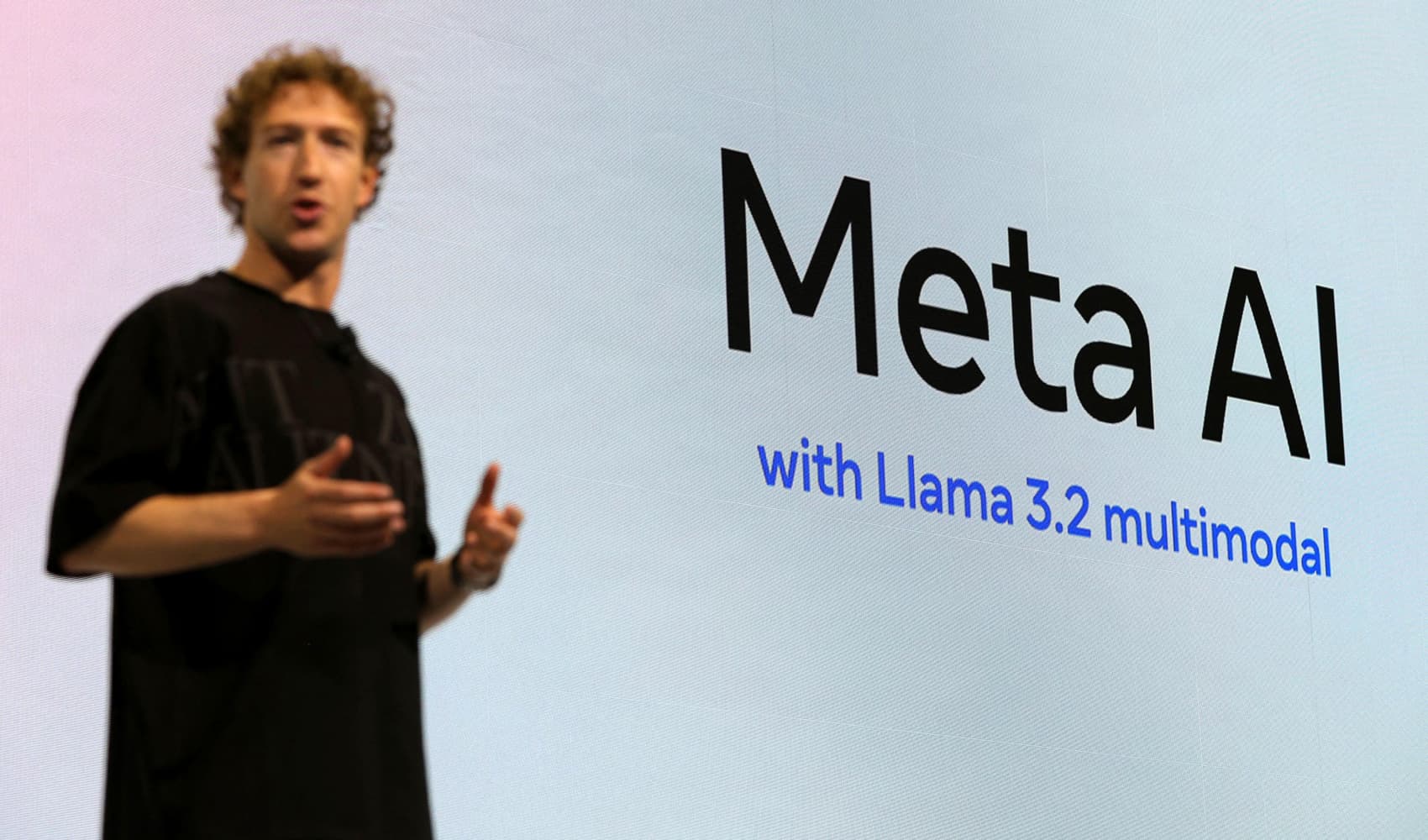Meta AI vs ChatGPT: The Ultimate AI Showdown is Here!
Meta's AI Revolution: Is This the End for ChatGPT?
The AI Battleground: Meta Enters the Fray
The artificial intelligence landscape is heating up, folks! Just when we thought OpenAI's ChatGPT had a comfortable lead, Meta Platforms, the tech behemoth behind Facebook and Instagram, is throwing its hat into the ring. They're launching a stand-alone AI app, directly challenging ChatGPT's dominance. This isn't just another tech release; it's a full-blown AI showdown.
Confirming the Rumors: Meta's AI Play is Real
Remember those whispers and rumors swirling around about Meta's AI ambitions? Well, they're no longer rumors! This announcement officially confirms reports from earlier this year. Meta is serious about staking its claim in the AI revolution. Get ready to witness some serious innovation – and competition!
Meta Joins the AI Crowd: Not the Only Player
Meta isn't alone in this AI gold rush, of course. It’s joining the ranks of other tech giants like Google and even Elon Musk's xAI. Think of it like the space race, but instead of rockets, we're building intelligent machines. Who will reach the AI moon first?
Under the Hood: Powered by Llama AI Model
So, what makes this new Meta AI app tick? The secret sauce is Meta's very own Llama AI model. This model fuels the app's ability to understand and respond to your queries. It's like giving a brain to the digital world, one algorithm at a time.
Discover Feed: The Social Side of AI
This isn't just another AI chatbot; Meta is injecting a social element. The app includes a "Discover feed" where you can see how others are interacting with the tool and explore different prompts. It's like eavesdropping on a conversation between humans and AI, but in a good way!
The Competition Intensifies: AI Arms Race
Let's be clear: this launch throws down the gauntlet to ChatGPT and other players like Anthropic. The AI arms race is officially in full swing. We're about to see a surge of innovation, improvements, and features as these companies battle for your attention – and your data.
How Does Meta's AI Stack Up? A Deeper Dive
Okay, so we know Meta is jumping into the AI pool. But how deep is the water? Let's break down what we know so far:
Key Features and Functionality
- AI Assistant Capabilities: We expect the app to offer similar functionalities to ChatGPT, including answering questions, generating text, and providing creative content.
- Llama Integration: The core of the app is powered by the Llama model, but how does it differ from other AI models on the market? Time will tell!
- Discover Feed: This unique social component sets Meta's AI apart. How will this affect user engagement and discovery?
The Social Media Giant's Advantage: Data and Reach
Meta has a significant advantage in this battle: massive amounts of data from its existing social media platforms. This data could be used to train the AI model and personalize the user experience. It’s like having a cheat sheet for understanding human behavior.
Privacy Concerns: The Elephant in the Room
Of course, with great data comes great responsibility. Meta's data collection practices have raised privacy concerns in the past. Will the AI app adhere to ethical guidelines and protect user data? This is a question on everyone's mind.
Beyond Text: Multi-Modal AI on the Horizon?
Currently, the focus seems to be on text-based interactions. But what about the future? Could Meta integrate image and video generation capabilities into its AI app? Imagine creating stunning visuals with a simple text prompt. The possibilities are endless!
Monetization Strategies: How Will Meta Profit?
Building and maintaining an AI app isn't cheap. So, how will Meta generate revenue? Will it be through subscriptions, targeted advertising, or some other innovative approach? The monetization strategy will be crucial for long-term sustainability.
Impact on Content Creation: A New Era for Creators
AI is already revolutionizing content creation. Will Meta's AI app further empower creators? Imagine using AI to brainstorm ideas, generate drafts, and even automate repetitive tasks. This could be a game-changer for bloggers, writers, and artists alike.
The Future of AI: A World Where Machines Understand Us
This isn't just about apps and algorithms; it's about shaping the future of human-computer interaction. We're moving towards a world where machines understand our needs and can assist us in countless ways. It's both exciting and a little bit scary.
ChatGPT's Response: Will It Remain King?
How will OpenAI respond to Meta's challenge? Will they double down on innovation, introduce new features, or try to acquire smaller AI companies? The battle for AI supremacy is just beginning, and ChatGPT won't go down without a fight.
The User Wins: A More Intelligent Future Awaits
Ultimately, the competition between Meta, OpenAI, and other AI players will benefit users. We can expect faster innovation, better features, and more affordable AI solutions. It's a win-win situation for everyone… except maybe the companies fighting for the top spot.
Conclusion: The AI Race is On!
Meta's launch of a stand-alone AI app is a clear signal: the AI race is officially on! We're witnessing a paradigm shift in how we interact with technology. From powering our content creation to simply answering our questions, AI is poised to become an integral part of our lives. Meta's move isn’t just a product launch; it's a declaration of intent to shape the future. So, buckle up, because the ride is going to be wild!
Frequently Asked Questions
Here are some frequently asked questions about Meta's new AI app:
-
Q: What is the name of Meta's new AI app?
A: While Meta has announced the launch of a stand-alone AI app, the official name hasn't been explicitly revealed in this announcement. We'll have to wait for the official launch to know the final name.
-
Q: When will Meta's AI app be available?
A: The exact launch date is yet to be announced. However, expect updates from Meta in the near future regarding availability.
-
Q: Will the app be free to use?
A: The monetization strategy for the app hasn't been unveiled. It's possible that Meta will offer a free tier with limited features and a premium subscription for advanced capabilities.
-
Q: How will Meta address privacy concerns with its AI app?
A: Meta is likely to implement robust data privacy measures and be transparent about how user data is collected and used. They will need to reassure users that their privacy is protected.
-
Q: What are the key differences between Meta's AI and ChatGPT?
A: The key difference highlighted so far is Meta’s integration of a "Discover feed," allowing users to see how others interact with the tool. Other differences will likely emerge as the app develops and is tested in the market.



